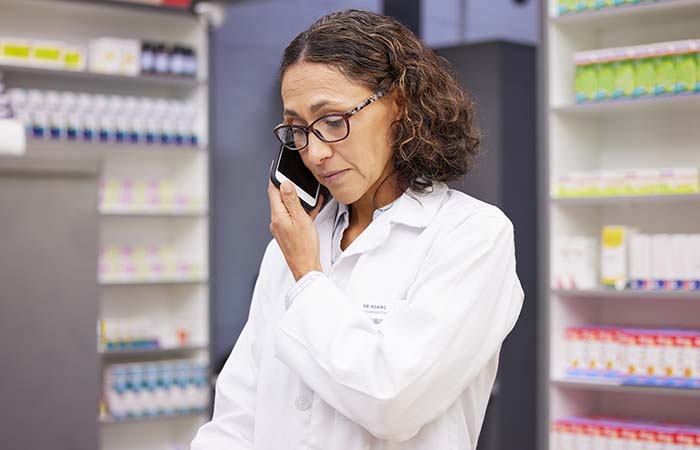NHS & health news

Drug shortages ‘beyond critical’ as pharmacies forced to ring up GPs every day
In NHS & health news
Bookmark
Record learning outcomes
The majority of pharmacy teams are forced to ring up local GP surgeries to address medicine shortages on a daily basis, says a new report from Community Pharmacy England that warns the problem is “beyond critical”.
CPE’s Medicines Supply Report, published today as part of the negotiator’s wider research into pressures in community pharmacy, reveals that 60 per cent of teams are calling GP practices about supply chain issues every day while 30 per cent are phoning up several days per week.
One pharmacist responding to the survey said: “A lot of surgeries don’t have direct professional lines so this needs to be addressed… pharmacists or staff don’t have time to hold on phones.”
The report, which is based on responses from over 6,100 pharmacies and 2,000 team members, reinforces the Nuffield Trust’s recent finding that shortages are “the new normal,” with 79 per cent of pharmacy team members reporting that patient health is at risk due to supply issues.
Ninety per cent reported a rise in wholesaler/supply chain problems and 72 per cent said the pharmacy is facing “multiple issues a day”.
“Medicines supply is always on my mind,” said one pharmacist, adding: “We are constantly checking if we can find these medicines for them, or chasing around trying to sort out an alternative."
Eighty-four per cent of contractors told CPE their teams are spending “longer than ever before” trying to source medicines, with 43 per cent spending over one hour a day trying to source stock or arrange an alternative and a further 30 per cent spending more than two hours every day.
Meanwhile, 98 per cent said the frequency with which their pharmacy has had to dispense part-prescriptions and issue owings for the remaining medicines has increased.
Almost all respondents reported a rise in workload and that they had been on the receiving end of patients’ frustrations, while 84 per cent said there had been a rise in aggression directed towards team members by patients.
Manchester contractor Fin McCaul told CPE his team was “on edge” due to instances of patient aggression and reported “occasions of people spitting at us”.
“I regularly have staff members in tears by the end of the day because of the sheer pressure of it all,” said Mr McCaul.
The report says pharmacists must be allowed to make “minor adjustments” to prescriptions as a short-term measure and also calls for wide-ranging reviews of the margins system and the overall supply chain, which CPE argued is partly a victim of the success of NHS policy as low drug prices make the UK “a less attractive market”.
CPE chief executive Janet Morrison said the report shows that “medicine supply challenges are beyond critical” and pharmacy teams are “doing everything they can” for their patients but are “powerless” to resolve “national and even global supply issues,” forcing them to operate “with one hand tied behind their back”.
CPE communications director Zoe Long said that the survey “confirms what everyone working in community pharmacy already knows” and that the negotiator has shared the findings with the NHS and politicians as well as national media.

